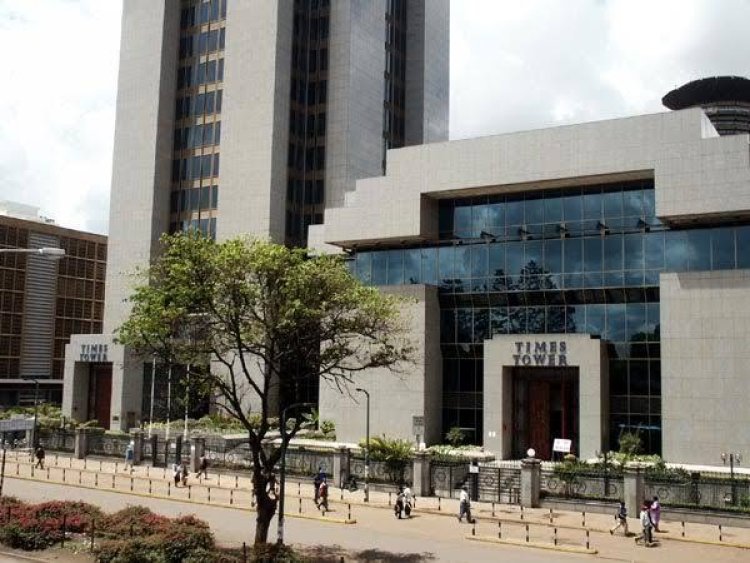What Happens If Employers Don't Pay Backdated Taxes? KRA Explains
What this therefore means is that employers will be required to remit the housing levy for both July and August, a move which could see employees inflicted with double deductions.

The Kenya Revenue Authority (KRA) on Friday, August 4 confirmed the backdating of the Affordable Housing Levy (AHL) which was suspended alongside the Finance Act, 2023 by the High Court in July.
After the Court of Appeal lifted conservatory orders issued against the implementation of the act, the government moved to compel the employers to submit monies that were due for July 2023.
What this therefore means is that employers will be required to remit the housing levy for both July and August, a move which could see employees inflicted with double deductions.

KRA offices at Times Tower, Nairobi. /CAPITAL GROUP
"Kenya Revenue Authority (KRA) would like to inform members of the Public that the Cabinet Secretary, Ministry of Lands, Public Works, Housing and Urban Development through a Public Notice dated 3rd August 2023, has appointed Kenya Revenue Authority as the collecting Agent of the Affordable Housing Levy (AHL).
"With effect from 1st July 2023, all Employers are required to deduct the AHL from the employee's gross salary and remit together with the employer's contribution as follows," stated KRA in part in a notice.
The taxman directed that the employers are obligated to remit the 1.5 per cent Housing Levy deduction by the ninth of every month, with employees also paying their 1.5 per cent contributions within the same period, a total of 3 per cent.
KRA emphasized that all employers are required to declare the AHL under sheet “M” of the PAYE return on iTax and generate a payment slip under the tax head “agency revenue” and tax sub-head "Housing Levy" and make payments at KRA agent banks or mobile money.
Thus, KRA expects employers to remit July and August 2023 deductions by September 9 or risk a two per cent penalty for the unpaid funds. For instance, if an employer was to remit Ksh200,000 in total for the month's contributions and fail, they will pay Ksh4,000 in penalties.
"Please note that the employer's contribution to the Affordable Housing Levy is an allowable deduction under Section 15 of the Income Tax Act.
"An employer who fails to comply with the law shall be liable to payment of a penalty equivalent to two per cent of the unpaid funds for every month if the same remains unpaid," added the notice.
KRA's statement came a day after the Ministry of Lands and Housing backdated the Housing Fund enshrined in the Finance Act 2023. As a result, employees will have more than just their August salaries cut.
For example, a Kenyan who would usually earn Ksh20,000 will have to pay Ksh300, but with the backdating, they will have to pay Ksh600.
Employees also face further deductions after other elements of the Finance Act, including increased PAYE for those earning above Ksh500,000, were backdated.
In the new directive, those earning above Ksh500,000 to Ksh800,000 will pay 32.5 per cent of their salary for PAYE, while those receiving over Ksh800,000 in salaries will pay 35 per cent.
The Law Society of Kenya (LSK) has since moved to court to block the new taxes contained in the Finance Act, 2023, which was heavily backed by President William Ruto.
LSK argued that the new taxes were unconstitutional and that the Housing Levy mandatory deduction for affordable housing threatens the social economic interest of Kenyans who are struggling with the high cost of living.

An illustration of the Affordable Housing Programme by Boma Yangu Initiative under the National Housing Corporation. /BOMA YANGU KENYA






